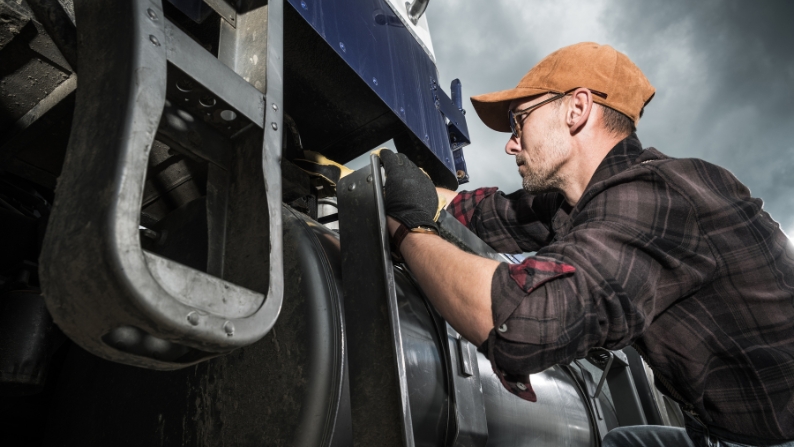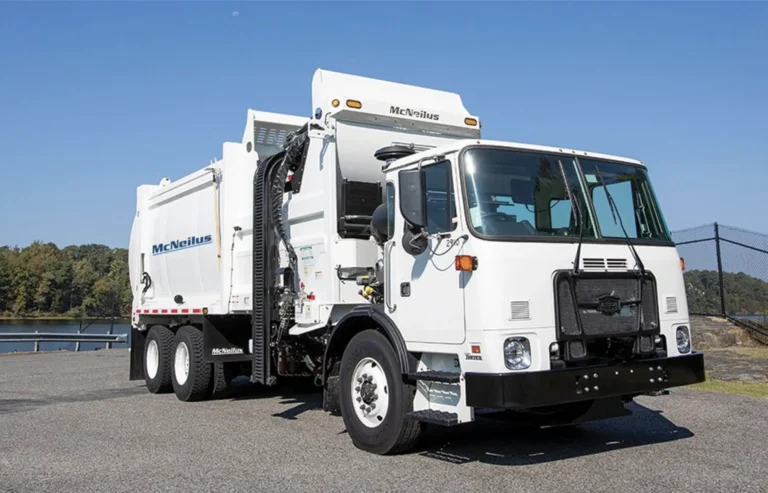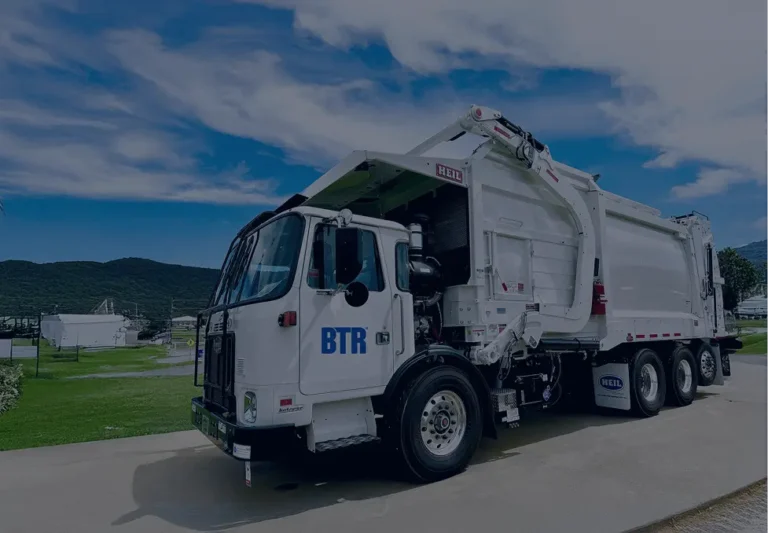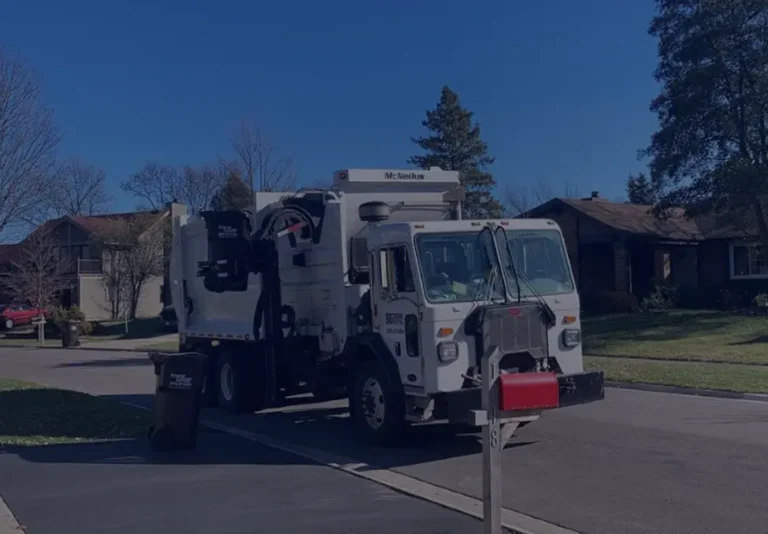Garbage trucks work hard every day, collecting tons of waste and keeping cities clean. But like any heavy-duty vehicle, they run into problems over time. Breakdowns, hydraulic issues, and electrical failures can slow down operations and lead to costly delays. If a truck isn’t running properly, waste piles up, causing frustration for both workers and the community.
The good news is that most garbage truck problems have clear solutions. Regular maintenance and quick repairs keep these refuse trucks on the road, doing their job efficiently. Let’s go over some common garbage truck problems and how you can solve them.
What Are Common Garbage Truck Problems and Ways to Fix Them?
Even the most reliable garbage trucks can experience issues. From engine problems to tire blowouts, these are some of the most common problems your garbage truck might face:
1. Engine Issues
The engine is the core of any garbage truck. Problems such as difficulty starting, stalling, or engine misfires often signal something is wrong. These issues could be caused by problems with the fuel system, ignition failure, or clogged filters.
How to Fix It: To prevent engine issues, check the fuel system regularly and replace spark plugs when needed. Keep the air and fuel filters clean, replacing them when they get clogged. Regular oil changes are essential for smooth engine performance and preventing wear and tear.
2. Hydraulic System Failures
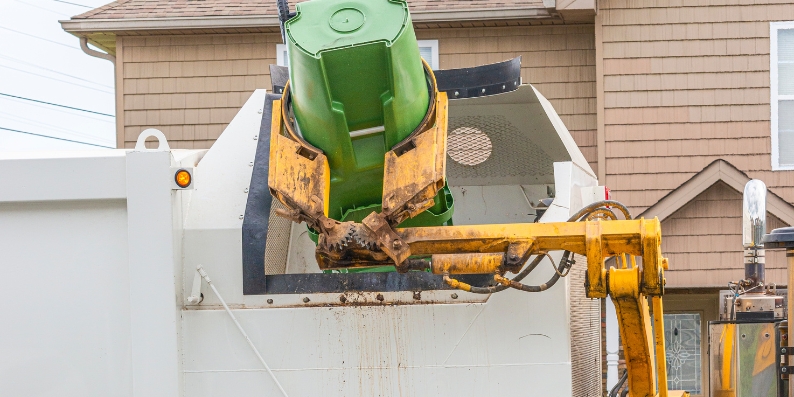
Garbage trucks rely on their hydraulic systems to lift and dump waste. A failure in the hydraulic system, such as slow-moving lift arms or unresponsive hydraulic controls, can halt operations completely, causing delays.
How to Fix It: To avoid hydraulic system failures, regularly check the hydraulic fluid levels and top them off as needed. Inspect the system for leaks and replace damaged hoses and components right away. Periodic maintenance and regular checks will ensure the hydraulic system functions properly and avoids unexpected failures.
3. Brake Problems
Brakes are a critical safety component in any vehicle, and garbage trucks are no exception. If the truck’s brakes squeal, feel weak, or cause vibrations when stopping, it’s time to check them out. Failing brakes are a serious safety issue that needs immediate attention.
How to Fix It: Inspect brake pads for wear and replace them as needed. Ensure brake fluid is at the correct level and check for leaks in the system. For air brakes, adjust the air lines as necessary to maintain the correct brake performance. Keep brake components clean and regularly test them to ensure safe operation.
4. Transmission Problems
Transmission issues, such as slipping gears, difficulty shifting, or strange noises when in gear, can be a problem for garbage trucks. These problems are usually caused by low transmission fluid or worn-out transmission components.
How to Fix It: Check the transmission fluid regularly and top it off when necessary. Ensure the truck’s cooling system is functioning properly to avoid overheating the transmission. If any components like gears or seals are worn out, replace them as soon as possible to prevent further damage.
5. Electrical Failures
Electrical problems can be a major headache for garbage truck operators. Issues such as failure to start, flickering lights, or dashboard warning lights are often caused by faulty wiring, dead batteries, or alternator issues.
How to Fix It: Inspect the battery and electrical connections regularly. Replace any damaged batteries and check for faulty wiring or blown fuses. Clean the electrical connections to prevent corrosion, and make sure the alternator is working properly to avoid charging issues.
6. Tire Wear and Blowouts
Tires on garbage trucks endure constant pressure from heavy loads and rough roads. Wear and tear, blowouts, and punctures are common problems in the industry and can cause unnecessary downtime if not addressed promptly.
How to Fix It: Check tire pressure regularly to ensure proper inflation and prevent blowouts. Rotate the tires frequently to ensure even wear and extend their lifespan. Replace worn or damaged tires immediately to avoid further issues. Inspect the tires for sharp objects or debris that may cause punctures.
Preventative Maintenance Tips
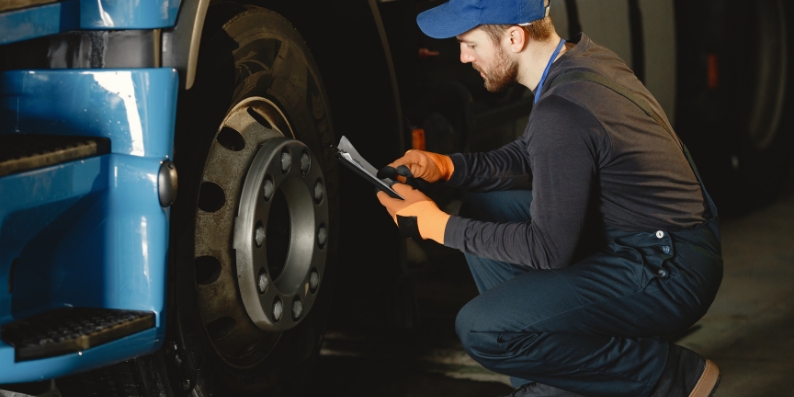
Preventive maintenance is the best way to avoid costly breakdowns. Here are a few tips to keep your garbage truck in top shape:
- Routine Maintenance: Establish a regular maintenance schedule to inspect and maintain key truck systems, including the engine, hydraulic system, brakes, and transmission.
- Track Service Records: Keep track of all services and repairs performed on each truck. This will help you identify recurring issues and avoid future problems.
- Driver Training: Train your drivers to spot early signs of problems and report them immediately. This proactive approach can help prevent major issues from developing.
- Fleet Management System: Consider implementing a fleet management system to keep track of truck maintenance, repair history, and operational performance.
Keep Your Garbage Trucks in Top Shape
Looking for a reliable garbage truck for your environmental fleet? Whether you need to buy or rent, contact Big Truck Rental today to explore our selection of high-quality garbage trucks for sale and rent. Keep your waste operations running smoothly with the right equipment!
Final Thoughts
Garbage trucks are vital to waste management and need regular attention to run smoothly. By addressing common problems early and performing routine maintenance, you can extend the lifespan of your trucks and reduce costly repairs. Taking care of your trucks now will keep your fleet running efficiently for years to come.
FAQs
How much weight can a garbage truck carry?
The weight a garbage truck can carry depends on its model, but most standard garbage trucks have a load capacity between 20,000 and 30,000 pounds.
Can garbage trucks be used for other types of hauling?
While garbage trucks are specifically designed for waste collection, they can be adapted for other hauling tasks. For example, some can be used for transporting recyclables, construction debris, or other bulk materials, with the proper modifications.
What should I do if my garbage truck won’t start?
Check the battery first. If it’s fine, inspect the ignition system and fuel supply. If there’s an issue with the wiring, it may need repair.
How often should I check the hydraulic fluid?
Hydraulic fluid should be checked regularly, ideally before every shift. If you notice slow or unresponsive lift arms, check the fluid and look for leaks.
Can garbage trucks handle extreme weather conditions?
Yes, garbage trucks are designed to handle a variety of weather conditions. However, it’s important to ensure that the truck’s engine, hydraulic system, and tires are properly maintained to perform well in cold, wet, or hot weather.
